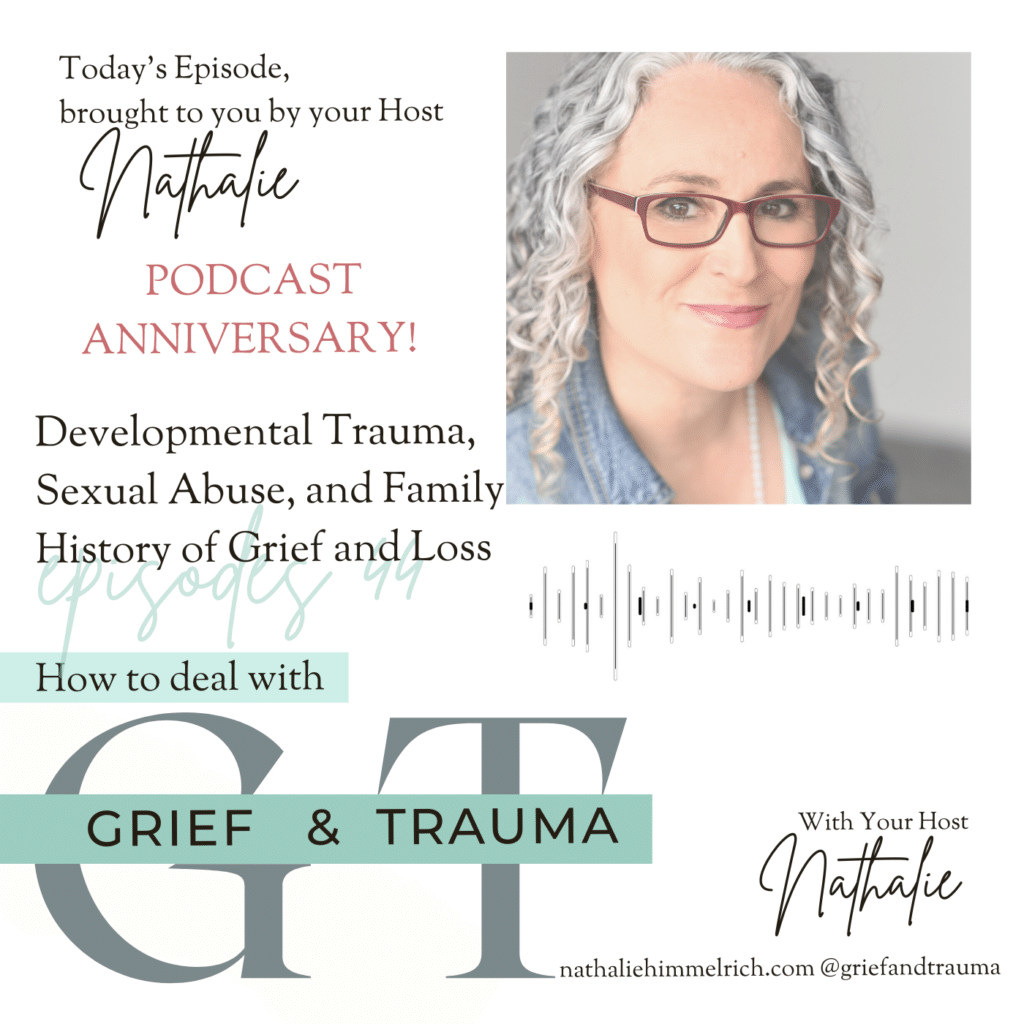HOW TO DEAL WITH GRIEF AND TRAUMA is completely self, funded, produced, and edited by me, Nathalie Himmelrich.
Consider making a small donation to support the Podcast here. Thank you!
For more information, please visit Nathalie’s website, join the podcast’s Instagram page, and subscribe to the newsletter to receive updates on future episodes here.

Birthday Giveaway
I’m giving away 5 copies of my books to individuals who leave or have already left a review for the podcast. The choice of the book is absolutely yours!
If you want to be in the draw for a copy of one of my books,
- Leave a podcast review, and take a screenshot.
- Send it to me by e-mail, latest by June 30th, 8 pm, to support@nathaliehimmelrich.com
- Important. You need to take a screenshot of when you are writing the review, not just when it is posted
- The winners will be announced on Monday, July 3rd via my newsletter. Sign up here.
Support this Podcast
Donate just 3$ per month to cover some of the cost: bit.ly/SupportGTPodcast
Nathalie’s links: Website | Instagram
Topics discussed in this episode
- Nathalie’s personal story of loss and trauma
- Non-death losses and the loss of grandparents and what she has learned from her family about grief and loss
- Developmental trauma
- Sexual abuse
Thank you for listening!
HOW TO DEAL WITH GRIEF AND TRAUMA is produced and edited by me, Nathalie Himmelrich. Support the show
Support the show:
- Become a supporter of the show! Starting at $3/month
- Join Facebook Group – Grief and Trauma Support Network
- Download the FREE grief resource eBook
- Book a complimentary Discovery Call
- Leave a review
Follow on socials:




